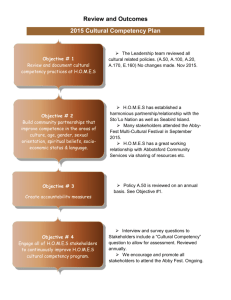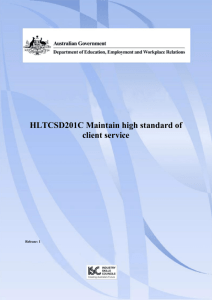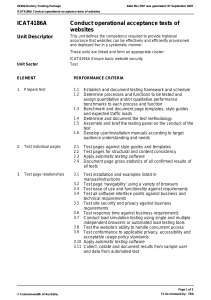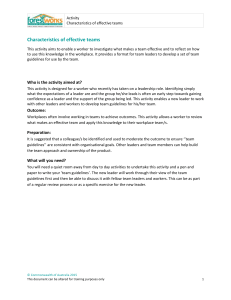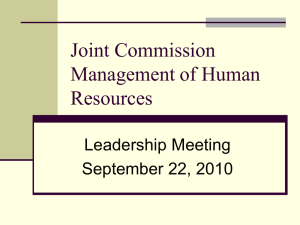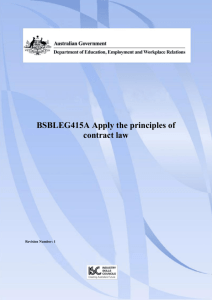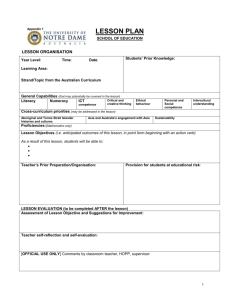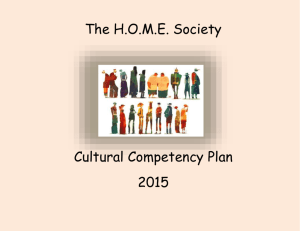BSB07 Business Services Training Package (Version 3.0) Date this
advertisement
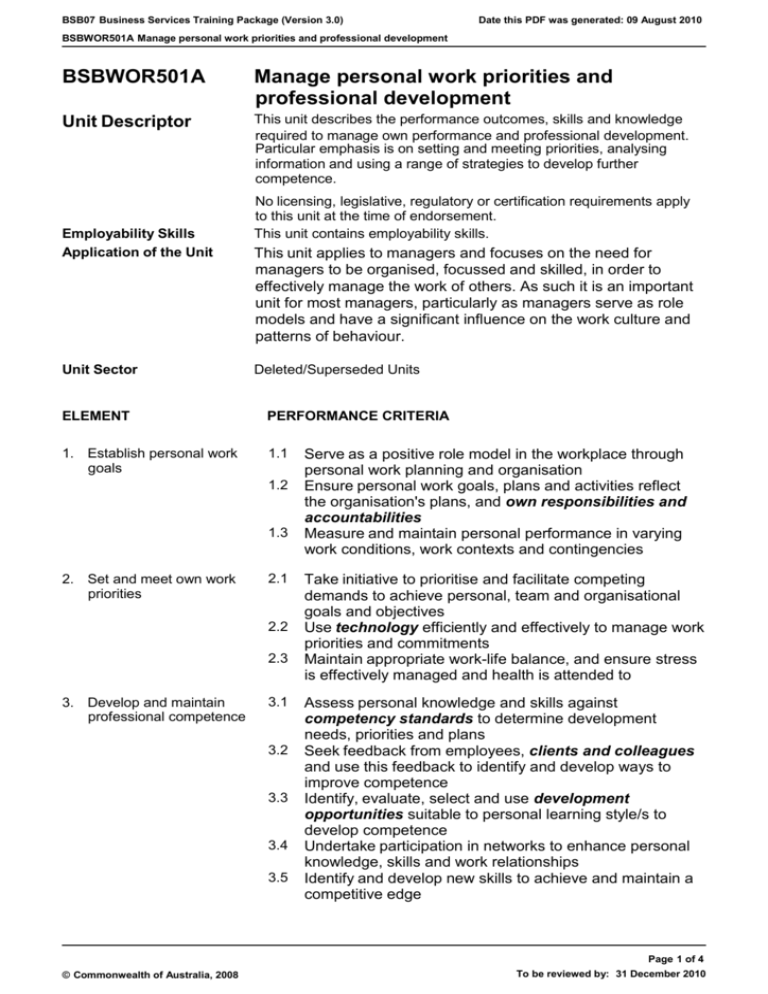
BSB07 Business Services Training Package (Version 3.0) Date this PDF was generated: 09 August 2010 BSBWOR501A Manage personal work priorities and professional development BSBWOR501A Manage personal work priorities and professional development Unit Descriptor This unit describes the performance outcomes, skills and knowledge required to manage own performance and professional development. Particular emphasis is on setting and meeting priorities, analysing information and using a range of strategies to develop further competence. Employability Skills Application of the Unit Unit Sector No licensing, legislative, regulatory or certification requirements apply to this unit at the time of endorsement. This unit contains employability skills. This unit applies to managers and focuses on the need for managers to be organised, focussed and skilled, in order to effectively manage the work of others. As such it is an important unit for most managers, particularly as managers serve as role models and have a significant influence on the work culture and patterns of behaviour. Deleted/Superseded Units ELEMENT PERFORMANCE CRITERIA 1. Establish personal work goals 1.1 1.2 1.3 2. Set and meet own work priorities 2.1 2.2 2.3 3. Develop and maintain professional competence 3.1 3.2 3.3 3.4 3.5 Serve as a positive role model in the workplace through personal work planning and organisation Ensure personal work goals, plans and activities reflect the organisation's plans, and own responsibilities and accountabilities Measure and maintain personal performance in varying work conditions, work contexts and contingencies Take initiative to prioritise and facilitate competing demands to achieve personal, team and organisational goals and objectives Use technology efficiently and effectively to manage work priorities and commitments Maintain appropriate work-life balance, and ensure stress is effectively managed and health is attended to Assess personal knowledge and skills against competency standards to determine development needs, priorities and plans Seek feedback from employees, clients and colleagues and use this feedback to identify and develop ways to improve competence Identify, evaluate, select and use development opportunities suitable to personal learning style/s to develop competence Undertake participation in networks to enhance personal knowledge, skills and work relationships Identify and develop new skills to achieve and maintain a competitive edge Page 1 of 4 © Commonwealth of Australia, 2008 To be reviewed by: 31 December 2010 BSB07 Business Services Training Package (Version 3.0) Date this PDF was generated: 09 August 2010 BSBWOR501A Manage personal work priorities and professional development REQUIRED SKILLS AND KNOWLEDGE This describes the essential skills and knowledge and their level, required for this unit. Required skills • communication skills to receive, analyse and report on feedback • literacy skills to interpret written and verbal information about workplace requirements • organisational skills to set and achieve priorities. Required knowledge • principles and techniques involved in the management and organisation of: • performance measurement • personal behaviour, self-awareness and personality traits identification • personal development plan • personal goal setting • time management • management development opportunities and options for self • organisation's policies, plans and procedures • types of learning style/s and how they relate to the individual • types of work methods and practices that can improve personal performance. RANGE STATEMENT The range statement relates to the unit of competency as a whole. It allows for different work environments and situations that may affect performance. Bold italicised wording, if used in the performance criteria, is detailed below. Essential operating conditions that may be present with training and assessment (depending on the work situation, needs of the candidate, accessibility of the item, and local industry and regional contexts) may also be included. Own responsibilities and accountabilities may include: • expectations of workplace performance as expressed in a performance plan • outputs as expressed in position descriptions or duty statements • statement of conduct outlining an individual's responsibilities/actions/performance Technology may include: • computerised systems and software, databases, project management and word processing • electronic diary • personal digital assistant (PDA) Competency standards may include: • enterprise-specific units of competency consistent with work requirements • nationally endorsed units of competency consistent with work requirements Page 2 of 4 © Commonwealth of Australia, 2008 To be reviewed by: 31 December 2010 BSB07 Business Services Training Package (Version 3.0) Date this PDF was generated: 09 August 2010 BSBWOR501A Manage personal work priorities and professional development Clients and colleagues may be: • colleagues at the same level and more senior managers • internal or external customers • people from a wide range of social, cultural and ethnic backgrounds and with a range of physical and mental abilities • team members Development opportunities may include: • • • • • • • action learning coaching exchange/rotation induction mentoring shadowing structured training programs EVIDENCE GUIDE The evidence guide provides advice on assessment and must be read in conjunction with the performance criteria, required skills and knowledge, range statement and the Assessment Guidelines for the Training Package. Overview of assessment Critical aspects for assessment and evidence required to demonstrate competency in this unit Evidence of the following is essential: Context of and specific resources for assessment Assessment must ensure: • systems and processes (electronic or paper-based) used to organise and prioritise tasks, which show how work is managed • personal development plan, with career objectives and an action plan • knowledge of relevant legislation. • access to appropriate documentation and resources normally used in the workplace. Page 3 of 4 © Commonwealth of Australia, 2008 To be reviewed by: 31 December 2010 BSB07 Business Services Training Package (Version 3.0) Date this PDF was generated: 09 August 2010 BSBWOR501A Manage personal work priorities and professional development Method of assessment A range of assessment methods should be used to assess practical skills and knowledge. The following examples are appropriate for this unit: • analysis of responses to case studies and scenarios • direct questioning combined with review of portfolios of • • • • • Guidance information for assessment evidence and third party workplace reports of on-the-job performance by the candidate observation of presentations oral or written questioning to asses knowledge of work methods and practices that can improve personal performance review of personal work goals, plans and activities evaluation of work-life balance review of documentation assessing personal knowledge and skills against competency standards. Holistic assessment with other units relevant to the industry sector, workplace and job role is recommended, for example: • other units from the Diploma of Management. Page 4 of 4 © Commonwealth of Australia, 2008 To be reviewed by: 31 December 2010
